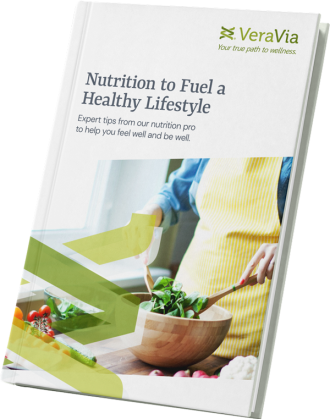Since most of us don’t personally farm our foods these days, we rely on commercial farmers to produce quality, nutritious foods to keep us healthy. Farming methods have made significant changes in the last half-century and not all have been positive. Most modern farming methods were developed to increase production in order to provide more food faster at a cheaper cost. However, many of these methods trade speed and convenience for taste and serious health risks.
We recommend incorporating organic foods into your meal and snack plan as often as possible.
During each wellness retreat we offer, we work with conscientious chefs to provide fresh, organic farm-to-table meals for our guests so they get an immediate first-hand experience with organic foods. We also provide educational workshops detailing the benefits of going organic.
Those of you who are unsure about eating organic don’t need to visit a weight loss spa to understand the associated diet and health benefits. Instead, here’s what you need to know.
Organic food is grown and handled differently than standard farming methods
The word itself simply means “relating to living matter.” However, when referring to foods, “organic” is defined as foods that are grown without the use of pesticides, synthetic fertilizers, and genetically modified organisms. For meat and fish, “organic” refers to food that is raised without using antibiotics or hormones. Seals on packaging listing a product as “USDA Organic” or “Certified Organic” mean that the item’s ingredients must be at least 95% organic. Organic ingredients are free from synthetic additives, including pesticides, dyes and chemical fertilizers and cannot be processed using industrial solvents, irradiation or genetic engineering. In short, organic foods must rely on natural–not chemical–methods of production.
By eating organic, you avoid chemicals with unknown long-term effects
There are over 600 active chemicals registered for agricultural use in the U.S. today which means that eating foods produced using standard farming methods leads to ingesting pounds of chemicals per year. Many of these chemicals are ingredients in powerful pesticides, which increase food production but have unknown effects on the human body. Long-term effects on health have not yet been studied and many of these chemicals received approval by the Environmental Protection Agency (EPA) before undergoing comprehensive diet testing. When you eat foods harvested using non-organic methods, you become a test subject for these chemicals and all associated health risks.
Organic food tastes better
Various studies by competing agencies dispute claims that organic food contains more nutrients. However, soil that is nourished using organic methods produces a yield that tastes like nature, not pesticides. You’ll enjoy more flavorful meals and snacks when you eat food produced by naturally balanced methods instead of artificially induced production. Once you develop a taste for organic foods, you’ll be more sensitive to bland, flavor-weak foods produced by conventional commercial methods.
By choosing organic, you avoid ingesting unwanted antibiotics and harmful growth hormones
Commercial meat, poultry and fish farms rely on antibiotics and growth hormones to generate a higher yield. These small-dose antibiotics and hormones do not break down during processing and are instead passed directly to you. Most of Europe has banned the use of hormones in raising livestock but the United States has yet to follow suit.
Concerns about humans ingesting livestock hormones include the early onset of puberty, heightened risk of cancer, tumor growth, and various other genetic problems. Meanwhile, ingesting antibiotics through your meat, dairy and fish products can cause bacterial resistance to antibiotics that can affect humans. This means that some antibiotic treatments in humans can ultimately become ineffective, which can pose a significant threat to your health.
Switching to organic foods is not difficult or complicated. Start by choosing products in the grocery store labeled certified organic. Conduct research about local farms and visit farmers’ markets to speak with small-scale farmers; discuss your concerns with them and ask questions about their farming methods. Finally, consult the staff at a weight loss spa or register for a weight loss retreat to jumpstart your foray into all the benefits of organic eating.






